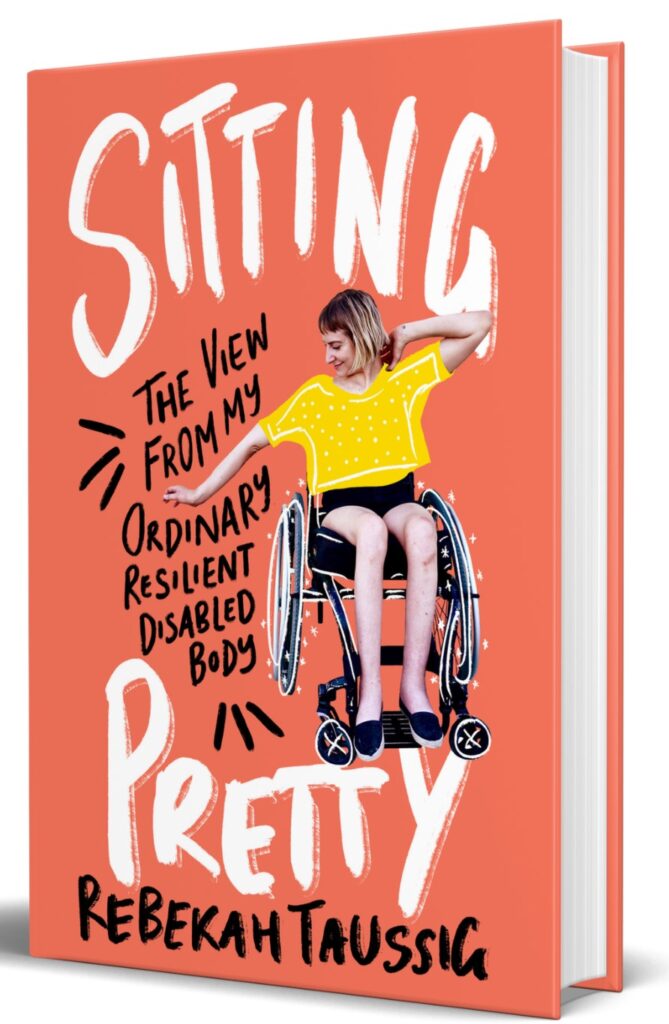
I began following Rebekah on Instagram about a year ago, and I was immediately captivated with her turns of phrase. She’s a natural storyteller. When I found out she had a book coming out, I put it high on my wish list. Sitting Pretty did not disappoint.
I felt an immediate connection with Rebekah. I call her Rebekah as if we’re buddies. We’re not. But I feel like we easily could be. We’re about the same age, and memories she shared of growing up often sparked similar memories for me, such as playing house and imagining fantasy romances after watching soap operas.
She writes about living as a disabled woman in a world that often doesn’t consider her needs at all. I appreciated her honesty and her encouragement that we look at even the most uncomfortable aspects of disability, such as the complications of kindness and the way that the cost of healthcare forces people to make hard decisions.
What I most appreciated, though, was her gentle yet insistent urging that we use our imaginations and bring people with diverse bodies to our conversations to improve everyone’s experiences. Rebekah shared her experience as a teacher and how exhausting and grueling the workload and expectations often are, which is amplified for her because her campus’s accessibility makes a task as simple as grabbing lunch an ordeal.
This resonated so deeply because I left teaching because the workload and expectations weren’t sustainable for me, and for so many others, as evidenced by the teacher shortage in many areas. But as Rebekah posits, what if we imagined teaching differently? Could it look different? Could it be kinder to our teachers’ physical, mental, and emotional needs? Could it grow into a more sustainable model that doesn’t burn people out? Of course it could. We just need to imagine it and then work to create it.
Read Sitting Pretty. It will make your ponder a more accessible world long after the you finish the last essay.
